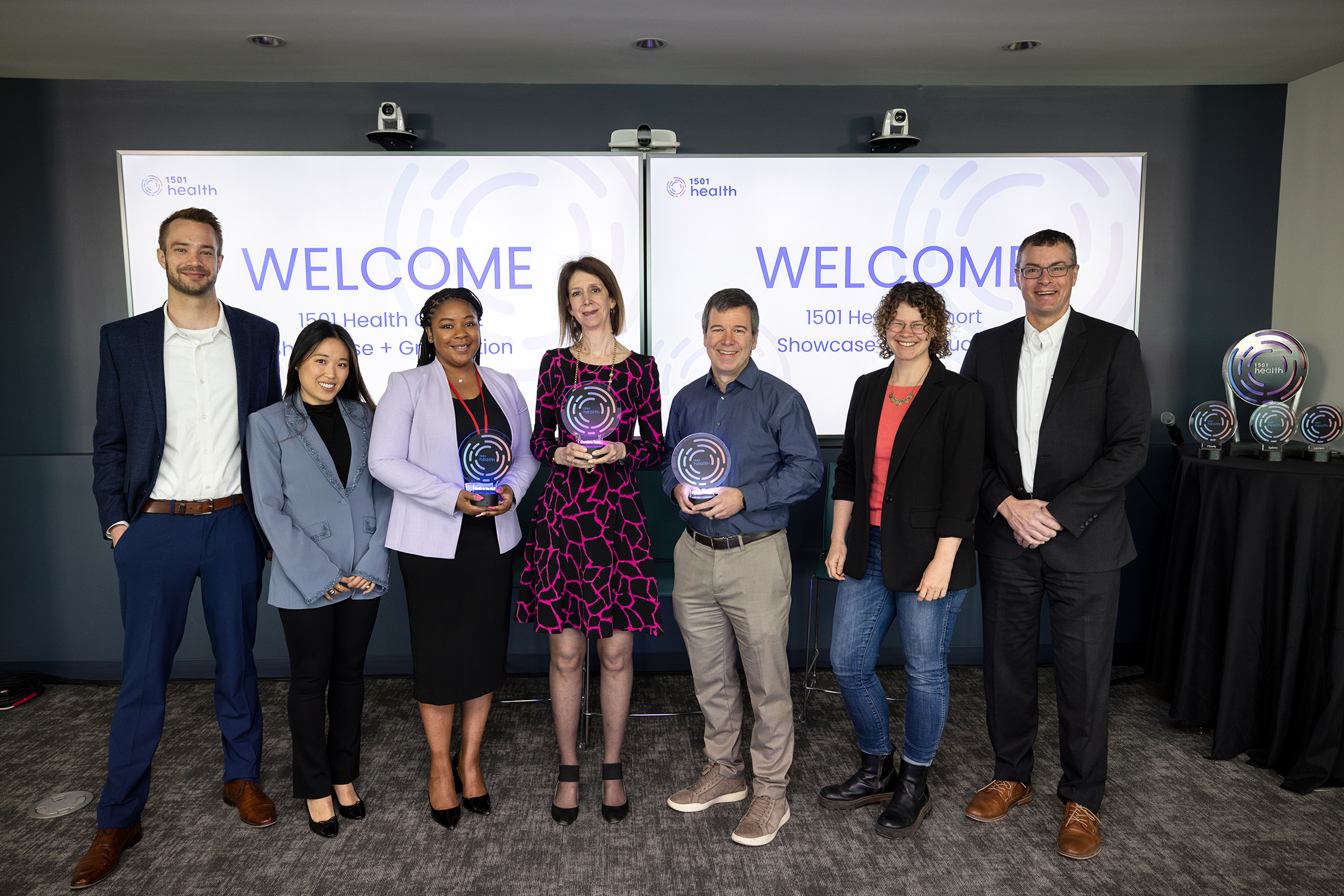The Healthworx Accelerator, a project from the innovation division of the mid-Atlantic insurance provider CareFirst, announced its reimagined program in mid-July. It’s the successor to a previous yearlong initiative, named 1501 Health, that ran for three years.
The main difference between this new program and the previous one is a much shorter timeline: Now, it’ll run for three months.
This accelerator is focused on catering to pre-seed and seed companies, according to Doba Parushev, a managing partner at Healthworx. Around 20 companies will be selected for the first cohort, for which applications open later this month, and it’ll still run once a year.
“We can deliver a large amount of the value we do in a shorter, more condensed period of time,” Parushev told Technical.ly.
Leaders are working on finalizing the curriculum, but members of the cohort will learn about pricing strategy, contracting models and compliance requirements, according to Soo Jeon, who runs the accelerator. It’ll be a hybrid program, and founders from across the country are encouraged to apply.
“Healthcare is a field that is unbelievably complicated — especially when it comes to startups working with large payers and large health systems,” Jeon wrote in an email to Technical.ly. “There are so many pieces involved. We purposely focus on the nitty-gritty pieces that aren’t sexy and don’t necessarily relate to growing your business because they are fundamental to working in healthcare.”
Founders will receive mentoring from industry leaders and capital, too. Healthworx will provide a $25,000 uncapped convertible note at the start of the program, and possible future support in subsequent fundraising rounds.
The program, like many accelerators, will culminate in a demo day.
Applications will be open for a couple of weeks starting in late July, per Parushev, and the program is anticipated to begin in early September.
Parushev also said that LifeBridge Health, the nonprofit healthcare firm out of Baltimore that partnered with Healthworx to create the program originally, is still involved, according to Parushev.
This isn’t the only support provided to healthcare firms out of CareFirst, which is dual-headquartered in Baltimore and DC. The innovation arm runs a fund of funds to back other venture capital investors putting money towards innovation in healthcare. It also has its own venture fund for companies that typically invests around the Series A-to-Series C stages, Parushev said.
Fostering innovation in a high-stakes sector
Experimenting with solutions in health is different than in other industries, Parushev said. That’s mainly because this field has very little room for error.
“I am willing to tolerate if the things you’re breaking is my database or Excel sheet … I’ll be frustrated, but I’ll be fine, right?” he said. “When that thing is my health, I am much more concerned about things being done diligently and thoughtfully.”
This reality forces a need for collaboration between incumbent healthcare players, such as CareFirst, and innovative startups. Integrating the two is what makes the Healthworx Accelerator strong, the program’s head Jeon explained.
“Throughout the healthcare space, there aren’t many forums where a lot of different strategic players get the chance to collaborate around early-stage innovation,” she said.
Also, startup founders working with leaders in the existing system is integral to establishing trust, Parushev said. That’s what makes the sector unique.
This part of tech is also a major player in the Baltimore area. Take, for example, the recent regional bid for the Economic Development Administration’s (EDA) Tech Hubs program: A regional consortium, which included CareFirst, applied for $70 million of federal funding to develop an ecosystem with predictive healthcare at its core. Although the EDA did not provide Baltimore Phase 2 funding, it still provides evidence of how much the healthcare economy matters to the city and surrounding region.
By nature of the field, it’s normal for established companies in the healthcare industry to be suspicious and cautious of new innovations, Parushev explained. Startups need to learn to work with that.
“To an extent, you’re relying on the trust with that system to take care of you,” Parushev said. “And when we bet on, we work with, we enable younger companies to help us — we’re extending a part of that trust.”







